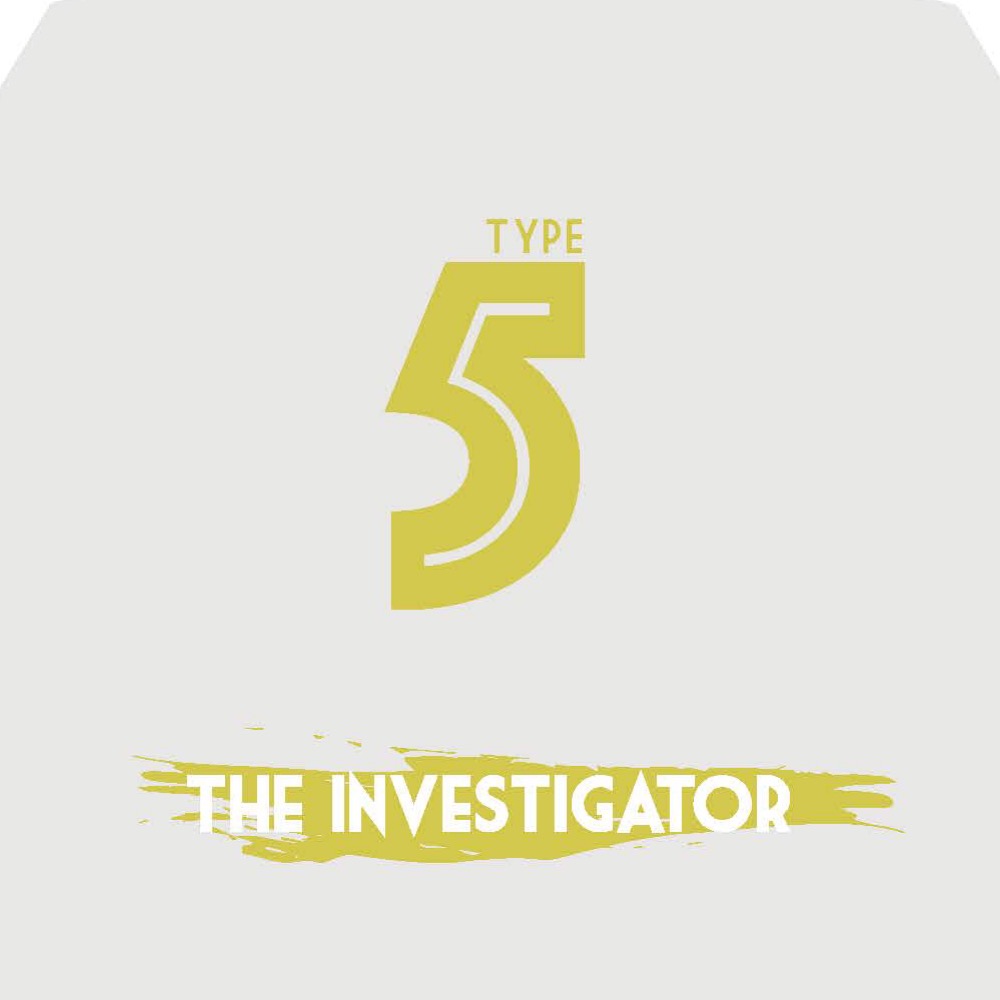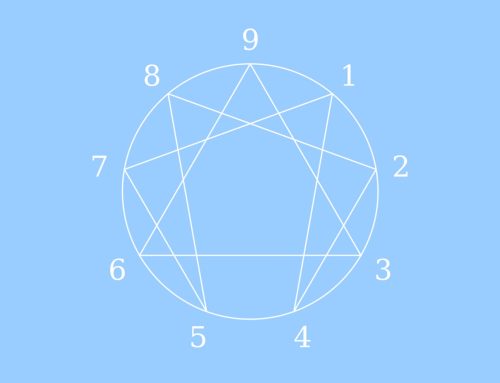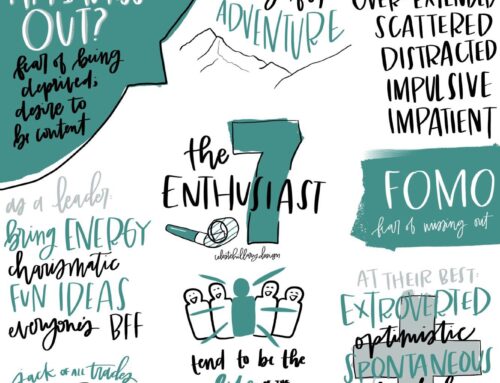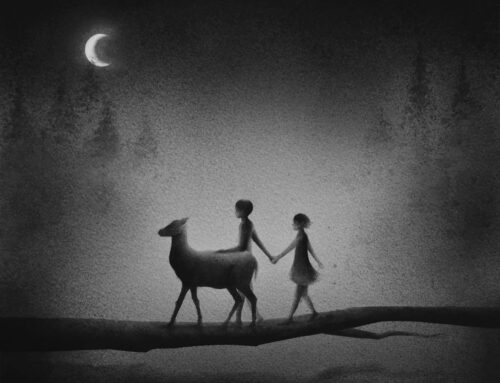A Day in the Life of an Enneagram 5: Liz H.
June 6, 2021
Categories: Enneagram
How did you get introduced to the Enneagram?
My husband—an Enneagram 4—ran across the Enneagram first and became quite enthusiastic about it. He brought it up in conversation after conversation. Our dialogues generally took the form of my husband sharing what he had learned about himself and gently suggesting it might be helpful to me to look into my type, and me disparaging the Enneagram as being the psychological equivalent of supplements (my apologies to those of you who think highly of supplements!; what can I say, I’m a 5). My attempts to avoid the Enneagram came crashing to the ground when The Road Back to You was chosen in my book club, and I was forced to read it. To my surprise, I did actually find it helpful in understanding myself, and while I am still a bit more cautious in my approach to the Enneagram than my husband, it has become a useful vocabulary in my relationship with him and with others.
What is it like being a 5?
My biggest difficulty in being a 5 is that the expectations of other people weigh heavily on me. If I’m asked to do something, it takes up mental space and emotional energy until I have fulfilled my obligation. I also have an overblown sense of responsibility to go along with that. So I work hard at limiting obligations that come my way. I’m very careful of what I commit time to, and I’m not on social media at all. But overall, at age 52, I think I generally find it comfortable to be a 5. I’ve worked my way into a job in which my daily activities fit with my tendencies, and I have an immediate family, friends, and a church community that accept my weaknesses and appreciate my strengths. I’m a professor of psychology, which means I get to engage in the world of ideas as a regular part of my job. Over time, my professional activities have moved away from clinical work, which often felt quite draining, and toward research. I love to engage with others in intellectual spaces, and in addition to my teaching, I now do this through mentoring research, collaborating with others in research, and training faculty. At work, I’m often asked to serve in mentorship roles with younger faculty, and people generally find my perspective-taking and ability to present balanced feedback helpful. At church, I enjoy teaching in my adult Sunday School. I think my five-ness has been a strength in these activities. I’m good at listening, so collaboration comes naturally. I don’t care that much about recognition, so issues of professional jealousy don’t often come up. I love sharing what I’m learning with others, and I think generosity with my input and my time is a strength.
It hasn’t always been as easy being a 5. When I was 10, my family moved to South America. My extroverted sisters quickly learned the language and found friends. I generally hid away with a book, cultivated a rich inner world, and ignored real people. As you might imagine, it took me much longer to acculturate. I didn’t really understand until sometime late in my 20s that other people experienced the world very differently than I did, that often people needed more from me than what I gave, and that my tendency to be somewhat self-contained was actually a failure to love. I like to think that over time I’ve improved in those areas! Currently, I find it most uncomfortable to be a 5 when I hit areas in my life where I feel incompetent or helpless, such as when a loved one is suffering.
Can you share a personal story of your number in action?
One episode in my life that displays both the worst and the best of being a 5 was my diagnosis with breast cancer at age 45. I said earlier that feeling helpless is not a great experience for me, and there is only so much you can do when facing cancer. Helplessness hit hard. During that season I learned to receive love from others, as so many friends and acquaintances reached out to help with meals, sent cards, etc. This is not easy for a 5. I also put my strengths to work. I researched the best treatments and symptom prevention strategies. On the psychological side, I became an expert in meaning-making coping, and especially the resources my faith brought to that process. During my cancer treatment I wrote a book chapter on the topic, and since then have developed that into an area of research expertise. This illustrates a number of characteristics of my type: my cognitive approach to problem-solving, my tendency to dive deeply into a topic, to bring order and systems into a messy body of literature, and my desire to share what I’ve learned with others.
How has the Enneagram helped you in the process of personal or spiritual growth?
Even before learning about the Enneagram, I was aware that my greatest weakness as a profound introvert was the failure to see others, and therefore to love them. When someone has my attention, I am a very good listener and an emotionally safe person in whom to confide. But I generally move throughout my life absorbed in whatever is going on in my head. I literally sometimes don’t see people when I am walking around campus. My sons joke that to get my attention, they have to stand right in front of me and yell “mom!” several times before I notice them. The Enneagram labels “avarice” as the deadly sin of the fives. At first, I didn’t see this, as I think that I am fairly open-handed with my time and intellectual resources. But over time I have come to see my self-sufficiency and preference for listening over sharing as reflecting avarice. People, especially people close to me, want more of me than my intellectual resources. I am working on giving more of myself.
How has the Enneagram impacted your relationships (eg, spouse, kids, friends, colleagues, etc)?
In The Road Back to You, Cron (a 4) tells of interactions he had with his friend Bill (a 5). “At seminary if I became worked up over something I would go to Bill, who listened patiently to me. If I became emotionally incontinent, however, he would move from looking concerned to regarding me with all the warmth of a snow owl, blinking and staring at me as if to say, ‘When does this end?’” My husband (a 4) and I both independently found this passage unnervingly accurate and very funny! The Enneagram has probably had the most impact on my relationship with my husband, as it has led to greater understanding of and acceptance of some of our personality quirks.

Related Thoughts

Subscribe To My Newsletter
Join my mailing list to receive the latest blog posts.
Receive my e-book “The Mental Health Toolkit” for free when you subscribe.





